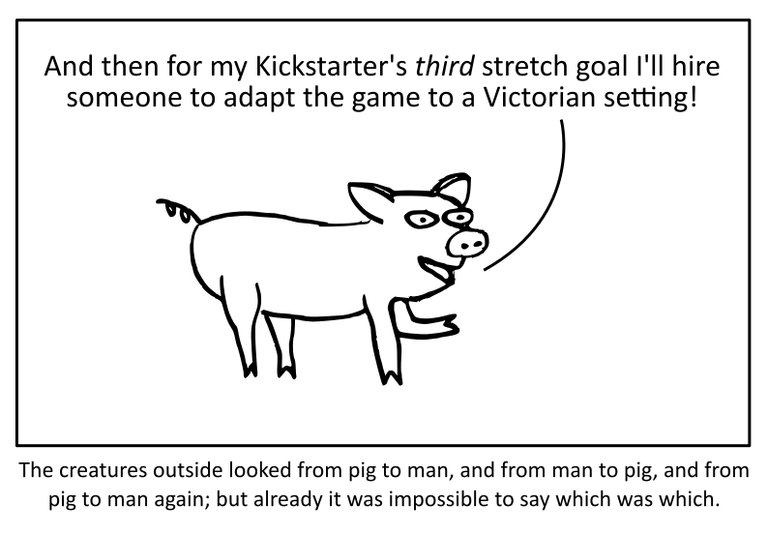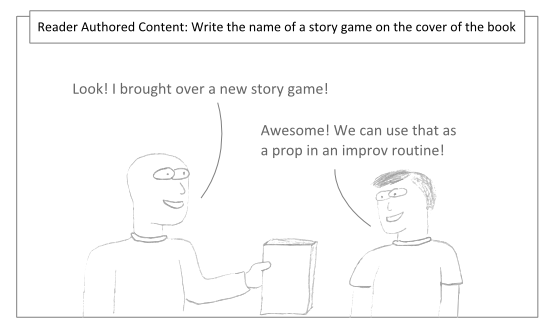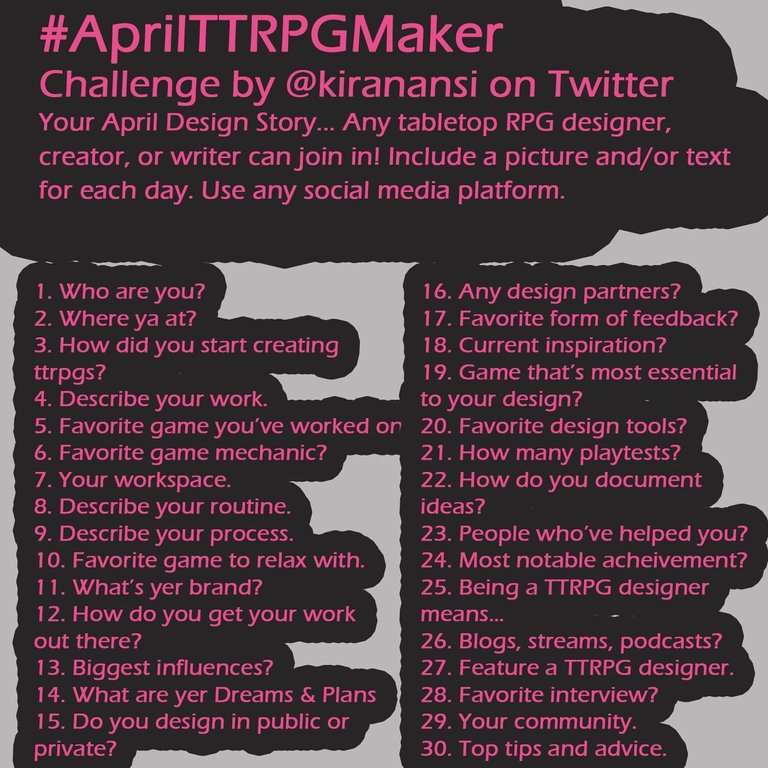The prompt for day 29 of #AprilTTRPGMaker is “Your community.” This is a rough one. In general I'm basically part of the indie games / story games community, but it's a pretty one-sided relationship. There's a Robert Frost quote that “Home is the place where, when you have to go there, they have to take you in.” Obviously an RPG community isn't really a home, but my sense is that many in the community wouldn't care at all if I felt fully excluded from it and might even prefer it that way.
Too late for The Forge
Although my game design sensibilities have a lot in common with the old Forge approach, I didn't get into RPG stuff and game design until after The Forge started its decline. That decline was apparently a somewhat intentional one. Ron Edwards' original vision for The Forge had nothing to do with game design and was all about game publishing. The interesting game design and RPG Theory stuff that happened there was entirely separate from the original intention. While it's good that a more sane independent RPG publishing world emerged (e.g. people realizing they shouldn't go into debt financing print runs of their “heartbreaker” project), I think print-on-demand services and some sort of e-book revolution would have eventually solved those sorts of problems whether or not Forge people pioneered some of the techniques for use in RPGs. The institutions that might have supported a functional and self-sustaining design community (e.g. norms, practices, etc.) were never built there, and indeed some decisions were made to actively oppose those sorts of institutions (e.g. the things that led to the “Forge diaspora”). That seems like it was a missed opportunity to me. And, in any event, it seems like Kickstarter has enabled the publishing approach of the indie revolution to, Animal Farm-style, become somewhat hard to distinguish from what it was revolting against.

Story Games: the tribe that hates tribes
The story-games forum was created as a place for Forge-game-inclined people to talk about games without the idiosyncratically draconian moderation policies of The Forge. The name of the forum was an effort to create a super-category that included all RPGs as well as other games that some people might argue weren't RPGs. While probably virtuously intended, I think that sense of argument-avoidance and denial that there was anything specific about the games-of-interest that was built into the DNA contributed to some toxic patterns. Unclear and partially-articulated norms enabled a lot of social status games and low-key bullying, such as enforcing a “don't talk about game design here” rule on newbies but not on established voices. And maintaining the pretense that there were no common trends in the games or playstyles there sometimes led to tensions with other communities, such as a subset of the OSR community.
I'm of the opinion that a degree “tribalism” is part of human nature, and the reasonable way to go is to acknowledge that and enable cross-memberships and pluralistic peace rather than antagonistic war. In contrast some people think that tribalism is evil and unnatural, but this can blind them to their own tribalistic behavior while they self-righteously denounce the tribalism of others. You can't feel obligated to tend to the healthy functioning of your own tribe if you think it doesn't exist. My view is that rallying around some positive values or institutions tends to be a healthier and more stable pattern for a group than rallying around who or what it opposes or excludes.
Community drift
Although the closest match to my gaming preferences is probably older Forge stuff, the story games community drifted away from that to a degree. For one thing, the heavy focus on conventions as the main place that play happens converted the idea that all story-games are high-energy one-shots from an inaccurate stereotype into something that's more accurate. Additionally, factors like the influence of the ideas of Improv Acting on the play culture started dulling the notion that the actual rules and procedures of games are things worth caring about.

A design community is a more fraught question
I was originally going to talk in this post about design communities rather than just gaming communities; I've had even more complicated feelings about whether I'm part of a design community than my gaming community ambivalence, but I haven't got the energy today to delve into that.
The #AprilTTRPGMaker questions

(From Kira Magrann's twitter)
Can you unpack that at all? I was nodding along to most of your post, but this point puzzled me. I thought "System Matters" was one of the old Forge concepts that did manage to survive?
I think it started from a strong place, but in my view System Matters hasn't survived completely. The way I see it, the Story-Games incarnation of System Doesn't Matter is "techinques". Basically people see something, say "Oh, that's a technique that good players/GMs use", and then think it's something they can bring to every game. So take Improv Acting -- the "rules of Improv" are themselves a System in the Forge sense, but if someone thinks that the "rules of Improv" are just a thing that good players do then they'll start bolting those mechanisms onto whatever system they're nominally using. So, for example, they might be keeping their character in a much more pawn-type stance than the game expected so that they'll be able to "roll with" whatever the other players throw at them. At least I think that's what happens, with at least some people.
Interesting. I haven't noticed that as a problem, but it's something I'll keep an eye out for.
I do think there are some behaviors and skills that generalize well across many if not all tabletop games, but they're social-skills things that are worth cultivating even beyond the game context. E.g. reading body language to notice when someone is upset, bored, or slighted.